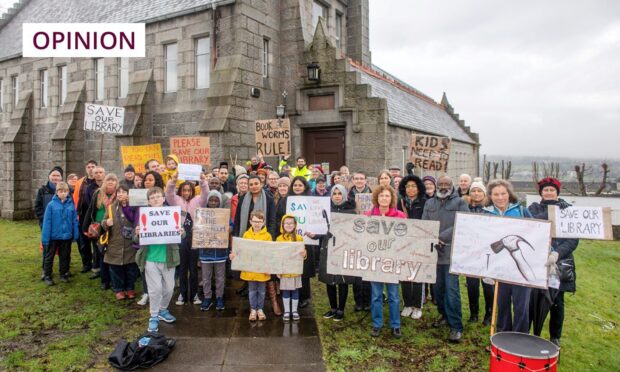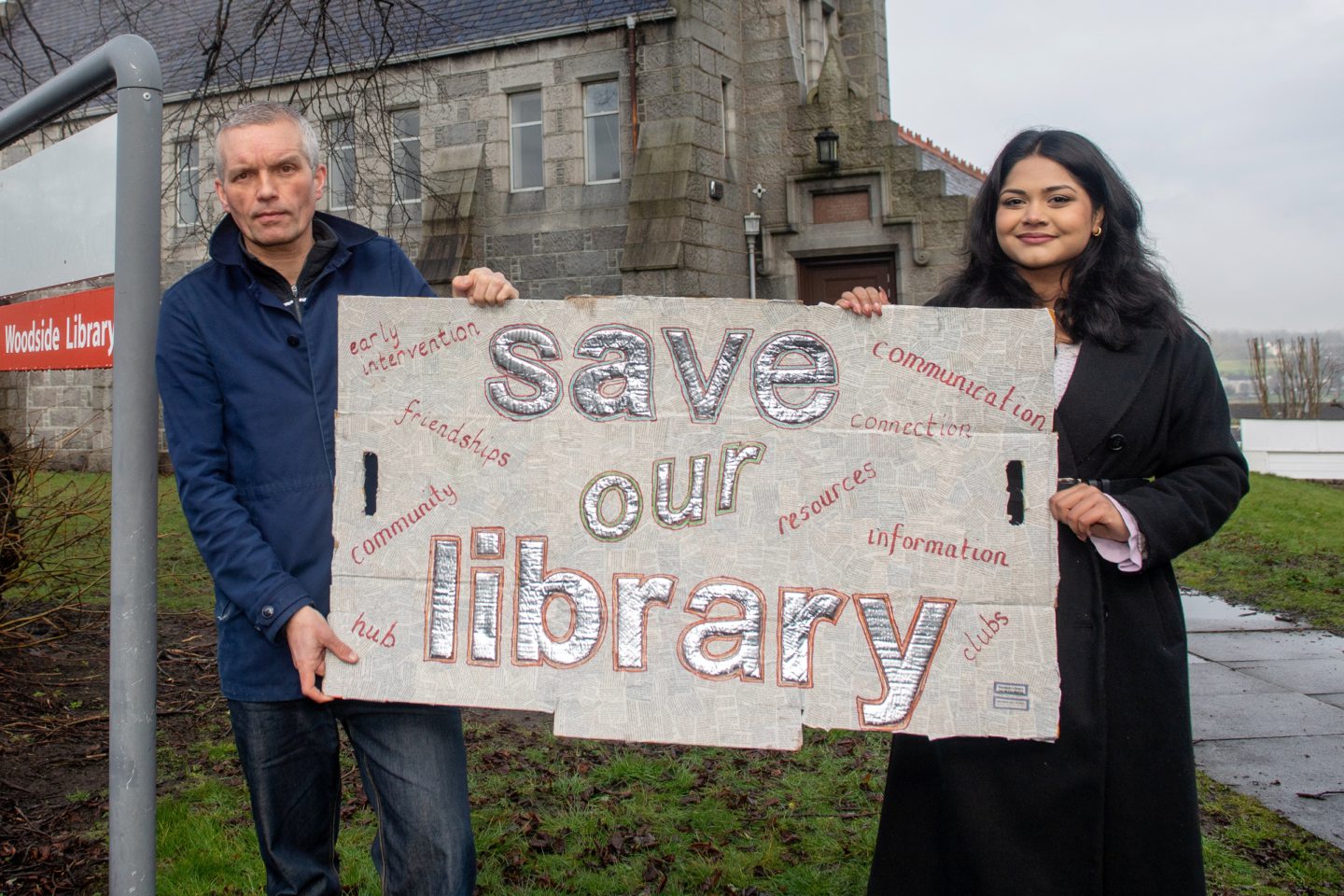Saturday will be a Gala Day at 356 Clifton Road, Woodside.
I’ll be gathering with community members and campaigners as we string up bunting, sing songs, and share memories to mark the 140th year of Aberdeen’s oldest library. Standing free since 1883, it’s a fine auld place. Granite-built, of course. Strong buttresses, corbel steps, topped by a tall minaret and weather vane, making it easy to spot on the neighbourhood skyline.
Our library owes its existence to a single benefactor. John Anderson was Woodside-born, an apprentice-boy in the old Burgh’s cotton mill. As a young man, he headed south (first Manchester, then London), forging a successful career in industry, growing wealthy, eventually receiving a knighthood. Then, late in life, Anderson chose to give back, as native sons of the Victorian age often did. His large portrait painting still hangs on Woodside Library’s storeroom wall, ever watchful.
Assembled gala-goers will be doing their best to make the anniversary a celebratory occasion. But there’s no getting around this: things are bound to feel bittersweet. The library’s entrance door can’t be flung wide. It won’t be possible to usher readers towards a welcoming world of books inside. The property will remain shuttered, the way it has every day for the past six months.
You’ll likely have heard about the stooshie over council cutbacks. The budget announcement back in March brought the axe down quick. Not just on Woodside, but five other community libraries citywide. Too quick, it would seem.
Following petitions, protests, then the threat of legal action, those hasty closure decisions voted through by councillors are currently being reconsidered. A political hack would call this screeching U-turn for what it is. I’ll simply say that the change of tune is welcome, and encourage residents in the affected communities (Cornhill, Cults, Ferryhill, Kaimhill, Northfield and Woodside) to keep on sharing their opinions until the public consultation closes next month.
What would Sir John Anderson have made of all this? As it happens, we know his views to a tee. In a remarkable letter, running to more than 100 pages, he set down his terms and conditions for establishing Woodside’s Library.
Why go to such great lengths? He gives the reader his answer clearly: “My chief reason is with regard to the future… that ruthless hands, which do not care for any of the things that have been referred to in this memorandum, will be prevented from some day trying to upset all our good intentions.”
Anderson might have been a masterful mechanical engineer, but he surely missed his vocation as fortune teller.
Make no mistake, depriving communities of vital social spaces is dismal stuff. Removal can blight a generation. The pandemic reminded us of this. Now, amid a local authority funding crisis, that lesson is being forgotten all over again.
In times of need, libraries are places that help us keep it together
For early learners and young readers, a library is a ladder to the sky. Just ask writers like Kerry Hudson or Damian Barr, who struggled through difficult childhoods. In adulthood, libraries can be similarly life-changing. Depending on the day, you might find yourself turning there for company, warmth, wifi, inspiration, advice, work, quiet, safety, freedom, escape – or possibly just a roll of green-waste recycling bags.
In times of need, libraries are places that help us keep it together. Never just a building where residents access reading services, they are catalysts for community spirit.
What’s not inclusive and desperately antisocial is the push for future provision via unstaffed hours or stripped-back, click-and-collect services
Ensuring that our libraries are facilities fit for the 21st century does mean that change is necessary. Electronic access to traditional services will be part of that package; if you’ve not streamed from BorrowBox or used the PressReader app then you ought to give them a go. But digital isn’t everything, nor are e-services accessible to all.
What’s not inclusive and desperately antisocial is the push for future provision via unstaffed hours or stripped-back, click-and-collect services. Pay a visit in person and you’ll see hard-working librarians, enlarging everything that’s on offer: true custodians of the commons.
In 1883, Sir John Anderson knew the lasting value of a library. Today, the citizens and councillors of Aberdeen surely do, too. That’s my hunch. We’ll need to wait and see.
Hayden Lorimer is a resident of Woodside and member of the Save Aberdeen Libraries campaigning group

